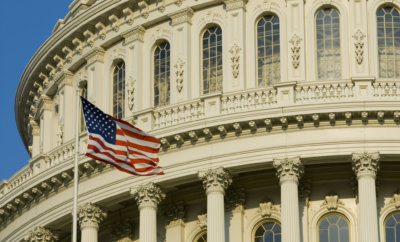Crime
Indian American Man Convicted in Hawala Plot for Drug Trafficking

Representational Image
Photo: Bigstock
Harinder Singh was found guilty of conspiracy to commit money laundering in Los Angeles.
An Indian American man from Monrovia in Los Angeles has been convicted for being part of an international money laundering racket that plotted to move millions of dollars for narcotics for organizations such as the Sinaloa drug cartel.
Harinder Singh, 32, also known as Sonu, is scheduled to be sentenced on April 30. At the time of sentencing, Singh will face a statutory maximum penalty of 20 years in federal prison for the conspiracy count, and five years for each of the other two charges. Singh was found guilty on Jan. 19 of conspiracy to commit money laundering, conspiracy to operate an unlicensed money transmitting business, and operating an unlicensed money transmitting business.
In the course of the two-week trial that took place in Los Angeles, evidence that was presented included wiretap calls in Punjabi, witnesses who spoke Punjabi as well as a money laundering expert.
All the evidences pointed out that Singh participated in a “hawala” conspiracy that was moving money generated from drug sales in Canada to the United States to pay for multi-kilogram drug shipments that were purchased in Los Angeles and then routed back to Canada for distribution, a statement from the Department of Justice said.
“The jury deliberated for less than two hours on Jan. 19 before finding Singh guilty of all three charges. With the verdicts against Singh, prosecutors have convicted 18 defendants who were named in a 2015 grand jury indictment that was the first major case in the United States involving ‘hawala’ transfers of drug money,” the statement added.
The other 17 defendants pleaded guilty earlier, and several have already been sentenced, receiving prison terms as long as nearly six years. The indictment also charges four other defendants who are currently fugitives.
Singh was stopped by the California Highway Patrol in October 2012, which led to the discovery of $274,980 in United States currency in rubber-banded stacks wrapped in black plastic. “While the traffic stop was being conducted, special agents with the Drug Enforcement Administration were conducting surveillance and observed Singh’s wife exiting the couple’s apartment complex carrying a bag, which later revealed $388,100 in United States currency, again rubber-banded in stacks and similarly wrapped in black plastic,” the statement added.
Hawala is an alternative form of money remittance that operates outside of traditional banking or financial systems. The transfer of monetary value occurs between the brokers, who are typically located in different countries, but sometimes in different cities in one nation.
“Drug traffickers used a traditional hawala network of brokers spanning the United States, Canada and India to secretly transfer millions of dollars of drug proceeds to the United States, where brokers such as Singh delivered money to couriers acting on behalf of the Canadian drug traffickers and Mexican drug cartels,” said the statement.
Before the traffic stop and the seizure at Singh’s apartment complex, a federal wiretap had intercepted calls in the Punjabi language. This indicated that Singh and co-conspirators had communicated over multiple telephone calls to arrange for the pick-up, transport and delivery of large amounts of United States currency, as much as up to $800,000, panning across the Los Angeles area.




You must be logged in to post a comment Login